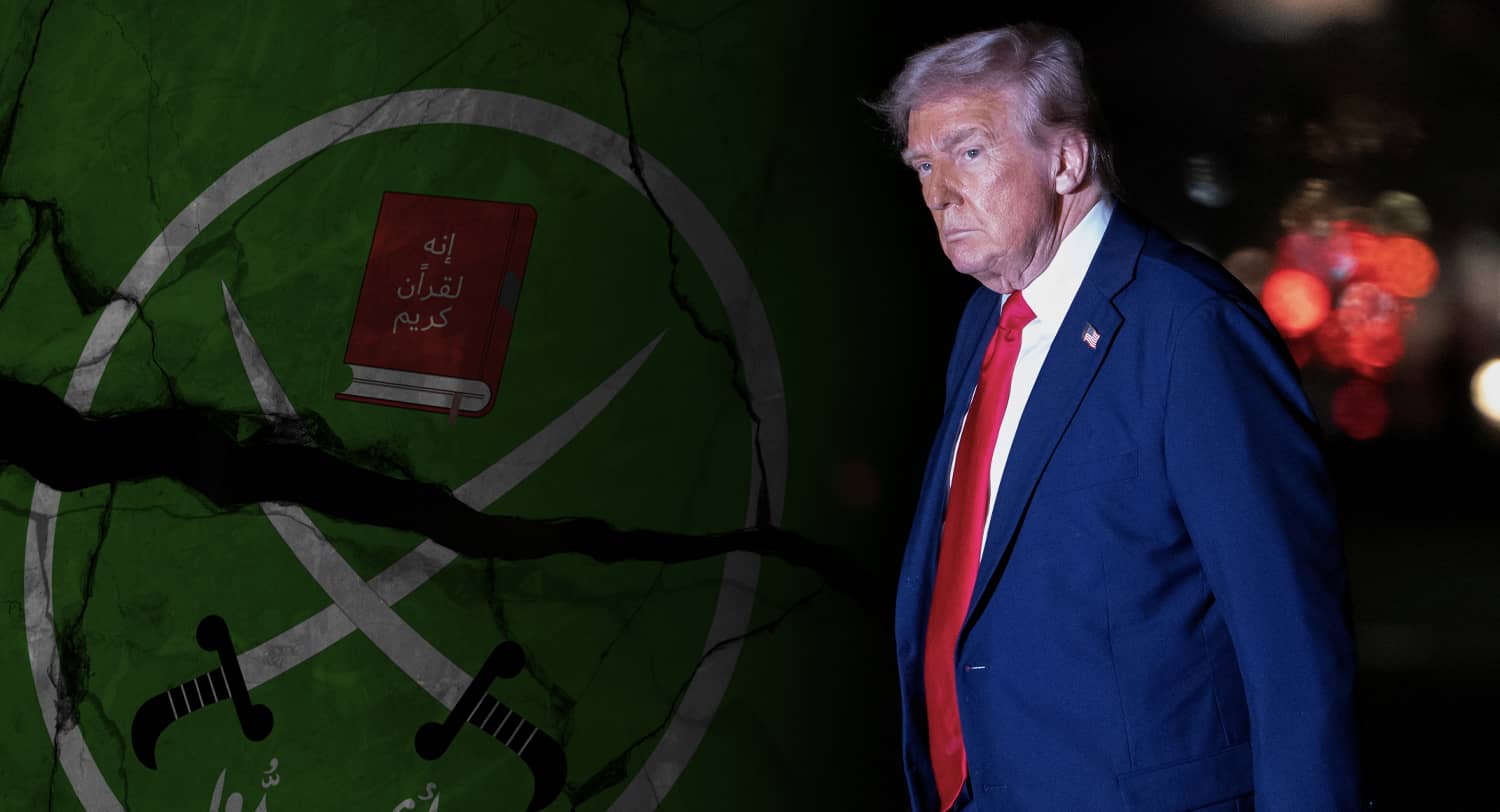While America has long focused on defeating terrorist networks like al-Qaeda and ISIS, it has largely overlooked the ideological infrastructure that gave birth to them. At the heart of that ecosystem lies the Muslim Brotherhood—a transnational Islamist movement that has inspired, influenced, and in many cases directly spawned the world’s most dangerous jihadist organizations.
Today, the Muslim Brotherhood and its ideological allies no longer operate in the shadows. They glorify terrorist attacks on American citizens, coordinate with US adversaries like Iran, and exploit both foreign and domestic platforms to spread extremist ideologies under the cover of civil society.
The October 7, 2023 massacre in Israel—executed by Hamas, the Palestinian wing of the Muslim Brotherhood—was a grim reminder of this reality. That day, terrorists slaughtered entire families, committed mass rape, and kidnapped civilians—including American citizens. In the aftermath, Islamist movements from North Africa to the Levant openly celebrated the atrocity. Brotherhood-affiliated political parties in Tunisia, Morocco, and Jordan praised Hamas and condemned anyone who dared to speak out. This was not just regional posturing—it was ideological solidarity with terror.
But the threat didn’t stop in Gaza. Just weeks later, the Houthis in Yemen—aligned with Iran’s Islamic Revolutionary Guard Corps—launched a wave of attacks on US warships and commercial vessels in the Red Sea, resulting in American casualties. Meanwhile, Iran-backed militias in Iraq targeted US troops, US facilities, and allies. These groups, while often sectarian rivals, are increasingly united by one goal: the destruction of American power and influence in the Middle East.
Despite theological differences, Islamist actors like Hizbullah, the Houthis, and the Muslim Brotherhood have converged strategically. They share logistics, messaging, and battlefield objectives. And they are increasingly supported by a broader ideological infrastructure: advocacy networks, political parties, mosques, and media platforms that all echo the same message—resistance to the West, rejection of Israel, and the imposition of religious authoritarianism.
In Egypt, once elected in 2012, the Brotherhood leader Morsi moved swiftly to place his authority above judicial review, suppress the press, and consolidate power. The same authoritarian instincts are visible in Brotherhood-affiliated parties across the region. In Tunisia, the Ennahda party revealed its radical nature after October 7, praising Hamas and stoking division. In Morocco and Jordan, Brotherhood-affiliated parties have openly justified Hamas’s actions and continue to call for support of the group, even after the October 7 massacre. These factions have actively intimidated dissenting voices, labeling critics of Hamas as traitors and demanding that governments take punitive action against individuals who challenge their pro-Hamas narrative—effectively stifling free speech and suppressing moderate perspectives.
This reality has dangerous consequences not only for American interests abroad but also for America’s internal cohesion.
In recent months, American campuses have seen a disturbing rise in pro-Hamas demonstrations, antisemitic rhetoric, and open hostility toward Israel—all fueled by narratives long promoted by Brotherhood-linked groups operating in the US. These organizations present themselves as civil rights advocates, yet many have documented ties to foreign entities that fund extremism. They leverage American freedoms—free speech, non-profit tax status, religious liberty— in order to weaken democracy from within.
The idea that democratic resilience alone can neutralize these threats is dangerously naïve. Islamist movements do not seek to participate in liberal democracies—they seek to exploit them until they can replace them. They do not accept pluralism or debate—they seek dominance. Left unchecked, these networks do not just radicalize minds—they eventually claim lives.
So what should the United States do?
First, the Muslim Brotherhood must be formally designated as a foreign terrorist organization. This would allow the US government to freeze assets, block travel, and prosecute those providing material support. Past administrations have considered this step, but bureaucratic hesitation prevailed. The facts today make inaction indefensible.
Second, the US must pursue legal and financial action against domestic organizations with clear ties to the Brotherhood or other foreign Islamist movements. Many of these groups receive funding from governments or private donors overseas, often through American banks. If American citizens or institutions are facilitating the spread of extremism—even unwittingly—they must be held accountable.
Third, Washington should impose travel bans on the leaders and family members of Islamist movements that glorified the October 7 massacre. These individuals should not be allowed to visit, invest in, or operate within the United States. Such a policy would signal that praising terrorism disqualifies you from enjoying the privileges of the West.
Fourth, the United States should use its diplomatic and economic leverage to push partner governments to crack down on Islamist parties that incite violence and promote religious authoritarianism. Using strategic partnerships, the US can help countries reform laws that currently allow extremist groups to dominate political discourse and silence dissent.
This is not a call for religious discrimination, nor a rejection of free expression. It is a recognition that certain ideologies—when organized, financed, and weaponized—pose an existential threat to the freedoms they exploit. Islamist extremism does not remain in rhetoric—it translates into action. And when those actions result in the deaths of Americans, silence is not an option.
The war on terrorism has entered a new phase. Today’s most dangerous adversaries are not just in the mountains of Afghanistan or the deserts of Syria. They are political actors, social media influencers, and community organizers—sometimes even in Western capitals—who wear suits, speak in soundbites, and exploit liberal institutions to undermine liberal values.
If the United States fails to confront this ideological enemy now, we will pay the price later—in blood, in broken alliances, and in diminished national security.
The time for complacency is over. The time to act is now.

